-
Senior Member
registered user
64-bits Knoppix from 7.0.2: In a Squeeze?
While converting Knoppix 6.4.4 into a pure (well, almost) 64-bits system turned out to be reasonably difficult, repeating the exercise with Knoppix 7.0.2 seems to be much harder - at least when working off squeeze (stable) as I have done. I may try to repeat the procedure off wheezy (testing) or sid (unstable), but perhaps the best thing to do today, is increasing the 64-bits content in hybrid ordinary Knoppix.
When 64-bits Debian 6.0.1 was released last year, it used the 2.6.32 kernel - not too far from the 2.6.37 of Knoppix 6.4.4, and library versions were mostly quite compatible, allowing for rather simple mix n' match. But a lot has happened in kernel-land since then, and when Knoppix 7.0.1/2 was released with kernel 3.3.7 in the end of May, it was rather far from Debian 6.0.5 released in the beginning of the month - still with 2.6.32.
And this is not simply accelerated version number counting: There are significant library differences, and I found a squeeze-based system rather hard to upgrade stepwise. For example, using debootstrap to create a basic squeeze-system, we very quickly run into problems if we try naive approaches for combining with Knoppix 7.X.
So, at a minimum, I think one has to work off wheezy or even sid to create a new Knoppix 64-bits basis. But I think stuffing in 64-bits libraries in Knoppix 7.X may be better for most uses. For now, I will use my Knoppix 6.4.4 64-bits remastering (kernel 2.6.39) for server-like tasks (running it with VMware workstation 8.0.3), and take the corresponding 7.X version as as a possible longer term project - stuffing up "standard" 7.0.2 with 64-bits binaries in the meantime.
Any hints, tricks or running 64-bits/kernel 3.x-versions are welcome! 
-
Senior Member
registered user
I may be wrong, but I have the feeling that Klaus K will resist 'stuffing' Knoppix with 64-bit
material except where there may be a more generalized usefulness in doing so.
Any particular identifiable use may create an exception, I'm sure. FWIW. Cheers.
-
Senior Member
registered user
This time you are most surely wrong  (Doesn't happen that often.)
(Doesn't happen that often.)
If you look at the 7.0.X directory structure, you will see that there is now a clean 32/64 separation, and Klaus K's promise of 64-bits programs working necessarily implies a lot of binaries stuffed in. Last year, I was somewhat skeptical about this kind of hybrid approach - I'm not any longer. I think it's more a question of adapting packaging to a dual setup. Still, non-hybrid setup has its important place - I'm writing this from the "pure" 64-bits 6.4.4-adaptation - but it doesn't have to be as big as we have thought.
-
Senior Member
registered user
We shall see.
I thought I'd made a mistake once,
but I was mistaken.
-
Senior Member
registered user
I think I should clarify a bit about "pure" vs hybrid OS versions: Processor-wise, there is of course no doubt that in a few years, most computers actual for running Linux will be 64 bits. So it is only a question of time when pure 64 bits will be the "natural" choice. But, as Knoppix 7.X shows, there is not really any great need for dropping 32-bits support to achieve good 64-bits performance. Therefore, expanding 64-bits support in Knoppix while retaining 32-bits functionality may actually be a very smart thing to do.
Trying to keep it mostly 32-bits is not an option today IMHO, but doubling up with two versions is, increasingly, looking like overkill to me. You don't need 64 bits for everything, but when you need it, you may need it badly. VMware workstation, R and Oracle XE 11 are three important 64-bits examples from my own use. But when such needs are catered for, the rest could in many cases be left as it is. For example, 64-bits Iceweasel is still not quite stable, and stuck at version 3.5.X. I would rather have the 32-bits newer and way more stable version.
So, I now tend to look at (current) pure 64-bits Knoppix as more of a server kind of thing, with a minimal installed package base for less dependencies to break. Could be done in the Debian manner of stable, i.e. squeeze-based, testing (wheezy) and unstable (sid). Morphing the debootstrap utility into knxbootstrap could be a way to proceed. Making all Knoppix packages apt-downloadable and installable would also help. If needed, release-dependent versions can be given separate package names.
-
Senior Member
registered user
.
I'm mainly objecting to the notion of 'stuffing' being anything Klaus K would be guilty-of.
I think he makes elegant, even if sometimes confusing, choices to pack a lot of performance
into a small medium, whether it be a CD or a DVD.
I have 2cpus, 4 Gb ram & a 64-bit processor,
but I've usually avoided 64-bit apps because they are often buggy;
examples are browsers, flash and pdf apps.
I'm pleased you have indicated some areas for which one might
aspire to using 64-bits in a meaningful way.
However, my needs are so mundane, even these don't whet my interest yet.
Klaus k has resurrected his ramdisk idea of a few years back and it does
about all I need in the way or re-mastering. I had thought re-mastering and
virtual systems might be what I needed, but the ramdisk approach is much
more suited to my minimal needs.
I can't see the utility of a Distribution offering which is all-up 32-bit AND 64-bit in one iso;
I can't see Klaus K offering dual 32-bit and 64-bit collections of screensavers & games.
I think Klaus K's focus is more to the underprivileged computer class, so I doubt
we'll see a 64-bit iso devoted to all 64-bit apps and system programs.
-
Senior Member
registered user

Originally Posted by
utu

.
I'm mainly objecting to the notion of 'stuffing' being anything Klaus K would be guilty-of.
I think he makes elegant, even if sometimes confusing, choices to pack a lot of performance
into a small medium, whether it be a CD or a DVD.
Which may also be called "stuffing" a lot of programs in.. The wording is largely irrelevant, the main issue is that making a selection of programs running 64-bits, takes quite a few supporting binaries, needing some space. But not that much - we don't need to create a KNOPPIX1 compressed image, for example.
As for your own needs, as soon as you start using the computer for something processor intensive, like multimedia processing, (RAW still image handling is one simple and quite usual example) you may appreciate the availability of 64bits solutions. Another 64-bits scenario that would be useful for a lot of users, is running more than one virtual machine at a time.
I can't see the utility of a Distribution offering which is all-up 32-bit AND 64-bit in one iso;
No one has suggested that AFAIK. But it would be handy to use the packaging system to convert any selection of programs into 64-bits, as well as installing new ones, without breaking anything.
I can't see Klaus K offering dual 32-bit and 64-bit collections of screensavers & games.
I think Klaus K's focus is more to the underprivileged computer class, so I doubt
we'll see a 64-bit iso devoted to all 64-bit apps and system programs.
I think you may have a somewhat narrow conception of Klaus K's focus. And I have explained why a more ambitous approach does not necessitate separate versions. Furthermore, it is mostly not Klaus K offering any userspace programs, they are AFAIK, mostly, installed from packages, and apart from the two kernel versions, I think at most a few libraries should be present in both 32 and 64 bits versions on the DVD. What I think would be useful, is having a method for creating a bare-bones 64-bits version, like a "knxbootstrap" utility. But Klaus K doesn't have to play any part in that.
 Posting Permissions
Posting Permissions
- You may not post new threads
- You may not post replies
- You may not post attachments
- You may not edit your posts
-
Forum Rules


VoIP IP Phone SIP WAN FV6020 Fanvil Gigabit Office Support IAX IAX2
$35.56
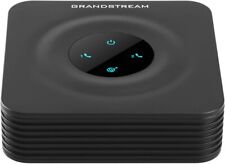
Grandstream GS-HT802 2 Port Analog Telephone Adapter VoIP Phone & Device, Black
$32.00
![Cisco VG202XM Analog Voice Gateway VoIP -- [NEW/FULL KIT] picture](/store/img/g/I0YAAOSwn0lle2WJ/s-l225/Cisco-VG202XM-Analog-Voice-Gateway-VoIP-NEW-FULL-K.jpg)
Cisco VG202XM Analog Voice Gateway VoIP -- [NEW/FULL KIT]
$76.00
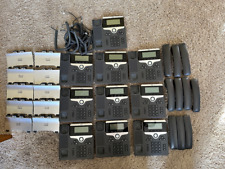
LOT OF 10 Cisco CP-7841-K9 VoIP 4-Line Business Phone w/ Stand Handset Cord
$69.99
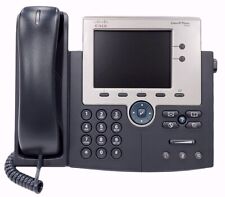
Cisco CP-7945G VOIP Phone With Stand & Handset Business IP Phone 7945
$3.00
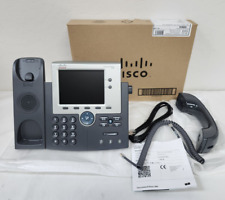
New Cisco 7945G IP VoIP Gigabit GIGE Telephone Phone CP-7945G -
$24.95
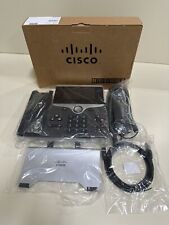
Cisco 8841 CP-8841-K9 VoIP Business IP Phone (Charcoal)
$50.00
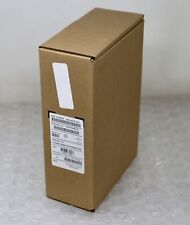
*NEW* POLYCOM 2200-46157-025 - VVX400 12-Line Business Media VoIP Phone, POE
$21.06
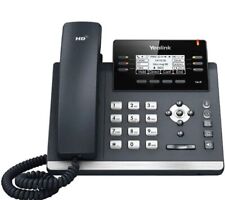
Yealink SIP-T41P PoE Ultra Elegant VoIP Phone
$29.95
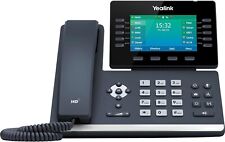
Yealink T54W IP Phone, 16 VoIP Accounts. 4.3-Inch Color Display - Black
$99.99



 Reply With Quote
Reply With Quote




![Cisco VG202XM Analog Voice Gateway VoIP -- [NEW/FULL KIT] picture](/store/img/g/I0YAAOSwn0lle2WJ/s-l225/Cisco-VG202XM-Analog-Voice-Gateway-VoIP-NEW-FULL-K.jpg)






